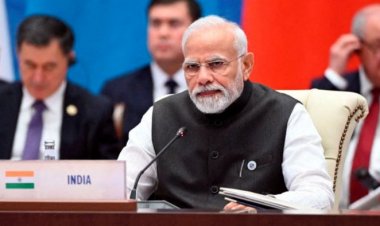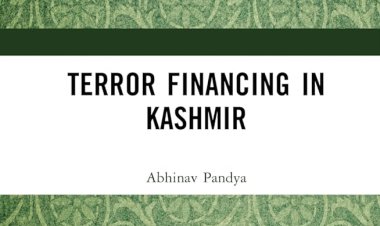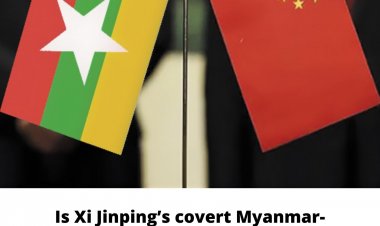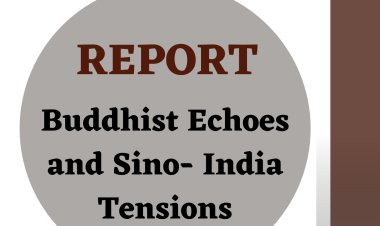Bangladesh as terror transit: The ISI-LeT axis plans January 26 carnage in India
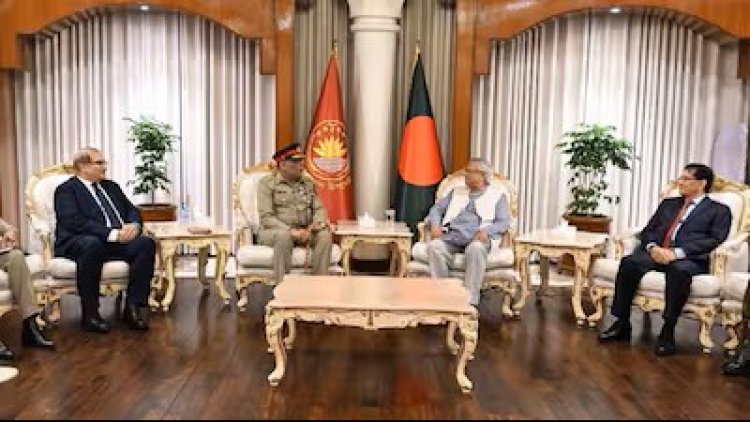
Analysis
By Salah Uddin Shoaib Choudhury
For decades, Pakistan’s Inter-Services Intelligence (ISI) has treated terrorism not as a policy failure, but as a policy instrument. Now, intelligence intercepts and field reports reveal that Islamabad’s most lethal proxy, Lashkar-e-Taiba (LeT), is preparing for a fresh wave of coordinated terror attacks across India, with particular focus on the eastern state of West Bengal. The looming danger - carefully timed to coincide with India’s Republic Day celebrations on January 26 - underscores how Pakistan’s state-sponsored jihadist machinery continues to threaten South Asia’s fragile peace. Unless countered decisively, this renewed ISI–LeT nexus could unleash another 26/11-style carnage, destabilizing the entire region.
Terror targets in West Bengal
According to highly placed intelligence sources, Pakistan’s spy agency ISI and its terror arm LeT are plotting a series of bombings and coordinated attacks targeting prominent landmarks in West Bengal, including Kolkata’s Victoria Memorial and the Kalighat Kali Temple in the Gariahat area. The use of improvised explosive devices (IEDs) made from gel-based explosives is being planned to bypass conventional security surveillance systems. This marks a worrying escalation in the operational sophistication of Pakistan-backed terror outfits, particularly in urban centers of eastern India that have so far been spared from large-scale jihadist attacks.
A new recruitment strategy of ISI-LeT nexus
Following the recent Delhi blasts, several individuals - including physicians -have been arrested with substantial quantities of potassium nitrate and other explosive materials. Yet, the ISI–LeT network appears unfazed. Intelligence assessments indicate the group has expanded its recruitment to include engineers, especially chemical engineers, who are tasked with establishing sleeper cells under various civilian or business covers in both West Bengal and Nepal. These recruits, leveraging professional legitimacy, are harder for counterterrorism units to detect, reflecting a sophisticated evolution in LeT’s operational design.
Bangladesh: The emerging staging ground
The plot thickens with developments in neighboring Bangladesh, where a combination of policy reversals and Islamist sympathies under the Muhammad Yunus regime has created a permissive environment for jihadist operations. For years, LeT chief Hafiz Saeed maintained extensive ties with Islamist leaders in Bangladesh, including Mufti Harun Izhar and Ansar al-Islam leader Mufti Jashimuddin Rahmani. These connections, largely dormant in recent years, are now being reactivated.
On October 25, 2025, Ibtisam Elahi Zaheer - a senior member of Pakistan’s Markaz-e-Jamiat Ahl-e-Hadith and a close associate of Hafiz Saeed - quietly entered Bangladesh. His arrival, sources say, was facilitated by the current regime’s pro-Pakistan policies and its deliberate dismantling of long-standing security protocols.
In addition to the logistical dimensions of the Lashkar‑e‑Taiba (LeT)-Inter‑Services Intelligence (ISI) axis, the ideological and clerical elements of Pakistan’s Islamist ecosystem are also being extended into Bangladesh. Notably, Maulana Fazlur Rehman- a notoriously anti-US individual and leader of the Jamiat Ulema‑e‑Islam (F) (JUI-F) - has arrived in Bangladesh to participate in a “Khatme-Nabuwat” conference scheduled for 15 November in Dhaka’s Suhrawardy Avenue.
During the event, he is expected to demand that the Ahmadiyya community be declared “non-Muslims” and to mobilize Muslim participation in “jihad against the enemies of Islam”, with additional engagements to take place in the Sylhet border region and other Bangladesh–India adjoining areas. This development must be understood in light of Rehman’s documented record of deploying Islamist clerical narratives - his 2011 speech, for instance, warned of “western forces pushing people toward extremism”.
Fazlur Rehman is accompanied by other Islamist leaders including Maulana Abdul Ghafoor Haideri, Maulana Asad Mahmood, Maulana Saeed Yousaf, and Mufti Ibrar Ahmed.
The overlap of high-visibility religious event participation with cross-border mobilization close to India’s frontier raises serious concerns about the export of Pakistan-based extremist ideology via Bangladesh, which complements the ISI-LeT tactical thrust discussed above.
Yunus regime’s dangerous policy shift
In September 2024, the Yunus regime issued a gazette notification exempting all shipments from Pakistan from mandatory inspection under the “National Selectivity Criteria”. Weeks earlier, it had also removed post-landing inspections of Pakistani consignments and abolished the security clearance requirement for Pakistani nationals applying for Bangladeshi visas.
A classified communiqué from the Ministry of Foreign Affairs further revealed that Bangladeshi embassies and high commissions were instructed to stop seeking intelligence clearance for Pakistani citizens - a stunning reversal of a 2019 security directive.
These policy changes, taken together, create a dangerous loophole that can easily be exploited for smuggling explosives, narcotics, and weapons into Bangladesh, and from there, into India. Counterterrorism experts warn that this constitutes a direct threat to India’s eastern border security and regional counterterrorism efforts.
Pakistan’s expanding shadow network
Pakistan, long branded globally as a terrorism-sponsoring state, has faced visa restrictions and sanctions from numerous countries. Yet, under the Yunus regime, Bangladesh has become an unexpected gateway for Pakistan’s covert operations. This permissive environment allows Pakistan’s ISI to use Bangladeshi territory as a logistical corridor - smuggling narcotics and arms, laundering terror funds, and re-establishing dormant extremist networks.
Zaheer’s movements within Bangladesh - spanning Rajshahi, Chapainawabganj, and other border districts adjoining India - have alarmed both Indian and Bangladeshi intelligence agencies. Analysts believe these visits are part of a broader plan to reactivate transnational Salafi-jihadist networks across South Asia. His travel route aligns suspiciously with areas known for historical cross-border militant activity and illicit smuggling routes.
A dangerous ideologue on the move
Ibtisam Elahi Zaheer’s extremist record makes his activities in Bangladesh especially concerning. In 2012, he publicly called for killing apostates and denounced Jews and Christians as “enemies of Islam”. His incendiary sermons have been condemned internationally. Several UK mosques and Islamic charities - including the Umm Ul Quora Foundation (Bradford), Al Hikmah Project (Keighley), and Makki Masjid (Manchester) - came under investigation by the UK Charity Commission for hosting him. British media has accused Zaheer of condoning sexual slavery and inciting sectarian hatred, prompting calls for a travel ban against him.
Given these extremist credentials, his unmonitored entry into Bangladesh and free movement near India’s border regions signal a catastrophic intelligence failure. For the ISI, Zaheer’s ideological fervor and proximity to Hafiz Saeed make him an invaluable asset to reenergize jihadist recruitment in South Asia’s eastern corridor.
Renewed Salafi coordination
Intelligence reports suggest Zaheer’s activities are part of a Salafi revivalist coordination effort involving Pakistani and Bangladeshi radical outfits, operating under the guise of religious conferences, madrassa visits, and scholarly exchanges. Such networks provide perfect cover for transferring funds, recruiting local militants, and organizing sleeper cells under the pretext of da’wah (proselytizing).
Sources within Bangladesh’s security establishment confirm that individuals with known terror affiliations are being permitted to operate freely. This trend coincides with a marked increase in terror financing, madrassa radicalization, and Salafi mobilization since the 2024 regime change - an alarming pattern that mirrors early signs of Islamist consolidation seen in Pakistan and Afghanistan.
The looming threat to India
Ibtisam Elahi Zaheer’s return visit to Bangladesh within six months underscores a disturbing pattern of cross-border coordination. On October 30, 2025, Lashkar-e-Taiba commander Saifullah Saif publicly declared that Hafiz Saeed’s top aide was operating from “East Pakistan” (a term used to describe Bangladesh by Pakistani hardliners), preparing to “push jihad into India”.
Hours after Saifullah’s incendiary speech at the Defense Companions and Wahlibat Conference in Khairpur Tamiwali, terrorist attacks rocked New Delhi - raising chilling questions about the coordination between these actors.
These developments, experts warn, suggest that Pakistan’s ISI is again weaponizing religious extremism to destabilize India through proxy terrorism. West Bengal, given its dense population, porous border, and communal vulnerabilities, presents an ideal soft target for Pakistan’s hybrid warfare strategy.
The urgent need for regional counteraction
The reactivation of the ISI–LeT network through Bangladesh is not merely an intelligence concern - it represents a tectonic shift in South Asia’s security architecture. With Bangladesh under a regime increasingly sympathetic to Islamist causes and Pakistan exploiting this alignment, India faces an expanded eastern front of potential infiltration and terror.
Counterterrorism agencies across South Asia must urgently enhance intelligence sharing, tighten border surveillance, and disrupt transnational funding pipelines that sustain extremist networks. Western governments, too, must recognize that complacency toward Pakistan’s terror apparatus and indifference toward Bangladesh’s Islamist drift risk empowering the same ideological ecosystem that produced 9/11 and 26/11.
The writing is on the wall: if these networks are not dismantled decisively, another wave of mass-casualty terrorism may soon engulf the subcontinent - this time, with Bangladesh serving as the new staging ground for Pakistan’s jihadist ambitions.
Disclaimer: This paper is the author's individual scholastic contribution and does not necessarily reflect the organization's viewpoint.
Salah Uddin Shoaib Choudhury is an award-winning journalist, writer, and Editor of the newspaper Blitz. He specializes in counterterrorism and regional geopolitics.

